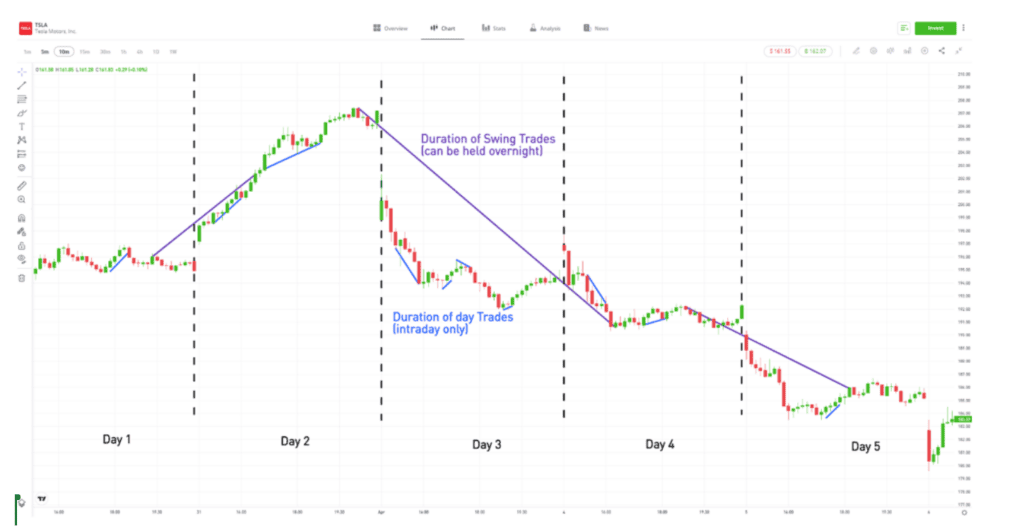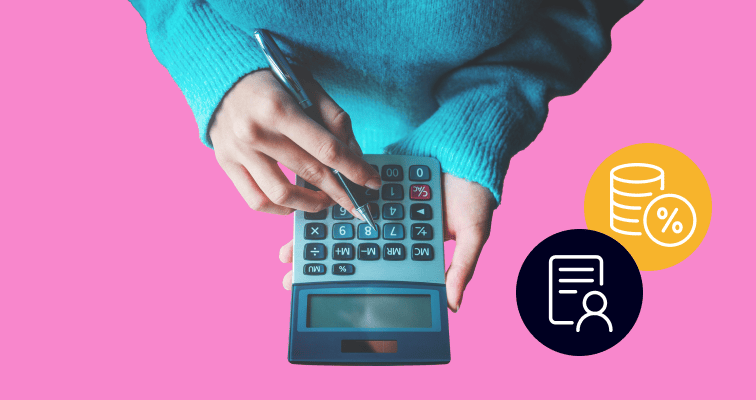Day trading is a popular method of trading, but what exactly is it and how is it done? Develop an understanding of what day trading means and the strategies involved. Learn the key terminology used by day traders and discover which day trading approach will best help you to achieve your investment aims.
As the name suggests, day trading is a method of trading that involves opening and closing trades on the same day. It is a strategy arguably best suited for individuals looking to take advantage of short-term price moves in the financial markets. Day trading is a very distinct approach that differs greatly from investing. It requires additional time, effort and understanding compared to other trading strategies, so it should only be undertaken by traders who understand the risks.
Where you want to be is always in control, never wishing, always trading, and always, first and foremost protecting your butt.
Paul Tudor Jones

What is day trading?
Day trading is a strategy that involves buying and selling securities or assets on the same day, and not holding positions overnight.
Typical day trading strategies involve booking a large number of trades. These trades can be open for minutes or hours, but they will only take place during periods when an exchange is open. The day trading approach can be used to trade any asset, such as stocks, indices, forex, cryptoassets and commodities.
Tip: Closing out open positions at the end of the trading day removes the risk of overnight events impacting the price of a held asset.
How do you start day trading?
Day trading is defined by a simple time parameter. This means that there is a lot to learn and numerous different ways of engaging in day trading.
Beginners should focus on one strategy and market at first. It is also important to start trading small amounts initially. This will allow traders to learn from their mistakes, revisit their research and gradually develop a trading psychology.
Fundamental and technical analysis are the two main building blocks of any trading strategy, but day traders tend to favour the latter, which focuses on identifying short-term pricing anomalies. Technical analysis indicators, such as the relative strength index (RSI) and chart trendlines, can help traders spot moments when a market has temporarily overshot to one side or the other.
In addition, short selling is a tactic employed by some day traders, who, trading CFDs, can try to take advantage of both downward and upward price moves.
- Booking a higher volume of trades in a short period allows for additional trading opportunities.
- Can be completed using a wide variety of strategies and asset types, providing greater flexibility.
- There is no overnight risk.
- Trading high volatility markets exposes day traders to increased risk.
- Researching, identifying and actively managing trades takes time and commitment.
- Because of the high volumes of trades, day traders can be inclined to make emotionally charged decisions.
What markets can you day trade?
The day trading approach can be used to trade any asset class. The key is to find a market that has the right amount of price volatility to allow you to open and close trades in the same trading session.
Day trading stocks
Stocks are among the most popular assets used for day trading. Most day traders will target stocks that have historically demonstrated greater volatility or liquidity, or companies that are experiencing significant price movements due to recent news or upcoming announcements.
Day trading forex
Currency markets are open around the clock. As trading can be carried out on a 24/5 basis, forex day traders can determine their own definition of a “day.” Local forex trading sessions typically overlap at certain times, and some forex day traders utilise these periods of higher trade volumes. For example, the London and New York sessions tend to co-exist for several hours a day, a fact that is acknowledged by experienced forex day traders.
Day trading crypto
Crypto markets are often considered to be a good fit for day traders because they are associated with extreme levels of price volatility. This increases the level of risk involved, but is something often sought after by day traders. Cryptocurrencies can typically be traded on a 24/7 basis, so individual traders can set their own parameters on how long a “day” is.
*Crypto CFDs are banned in the UK.
Tip: Day traders actively seek out high volatility markets that are known for relatively large, short-term price moves.

Swing trading vs day trading
Swing trading is similar to day trading. Both approaches rely heavily on technical analysis and target short-term price moves. However, swing trading strategies include the option to hold positions for longer. Some swing traders hold positions for days, weeks or months, which introduces “overnight” risk, but opens up a greater number of trading opportunities.

For illustration purposes only. Past performance is not an indication of future results
Source: eToro
Tips for day trading
Day traders must be prepared and able to set aside the time needed to manage trading positions in fast moving markets. Consider using a demo account and starting by trading small volumes at first. This will help you to develop the required skills and mindset before risking too much of your capital.
Risk management is also an important consideration for day traders. Not every trade will be a winner, and certain metrics, such as win-loss ratios, can help a trader to monitor their own performance. Stop-loss and take-profit orders, automated instructions that close out positions when a price reaches a certain level, can also be used to help day traders stay on top of their portfolios.
Day trading can, but doesn’t need to, involve watching the markets from the time an exchange opens until it closes. There will be intervals in a trading session during which day trading strategies are best applied, so the day trading approach can involve trading for a shorter period of time than other methods of trading or investing.
It is also important to review your trades. Looking back at previous trades can demonstrate your trading strengths and weaknesses. Is there a particular time of day that you are seeing the best results? Is a particular day trading strategy working well for you? Keeping track of old trades can help you to improve on past mistakes and help you to become a better day trader.
Tip: Price volatility changes over time, so day trading involves monitoring which markets become a better fit for the approach and trading them instead.

Final thoughts
There is plenty about day trading that will appeal to interested parties. Day trading offers a way to reconfigure a work-life balance, as well as the opportunity to learn a new skill. However, it is a difficult strategy to employ, and statistics suggest that many day traders will not be successful. To give yourself the best chance, devote time to learning, research and practise, rather than just jumping straight in and booking trades.
Visit the eToro Academy to learn more about day trading in the financial markets.
FAQs
- Is day trading illegal?
-
No, it’s not illegal, but anyone carrying out day trading in the US needs to be aware of the pattern day trading laws. In addition, some brokers may not allow new or beginner investors to engage in day trading. It is a strategy best suited to traders who do their research and are aware of the risks, but it is not unethical or illegal.
- Can I practise day trading?
-
Yes, just look for a trading platform that offers the chance to carry out trading using a demo account. First and foremost, learn how to day trade using virtual funds, and explore the different asset classes and how they work. Once you are comfortable, you can consider starting to trade using real capital.
This information is for educational purposes only and should not be taken as investment advice, personal recommendation, or an offer of, or solicitation to, buy or sell any financial instruments.
This material has been prepared without regard to any particular investment objectives or financial situation and has not been prepared in accordance with the legal and regulatory requirements to promote independent research. Not all of the financial instruments and services referred to are offered by eToro and any references to past performance of a financial instrument, index, or a packaged investment product are not, and should not be taken as, a reliable indicator of future results.
eToro makes no representation and assumes no liability as to the accuracy or completeness of the content of this guide. Make sure you understand the risks involved in trading before committing any capital. Never risk more than you are prepared to lose.
CFDs are complex instruments and come with a high risk of losing money rapidly due to leverage. 77% of retail investor accounts lose money when trading CFDs with this provider. You should consider whether you understand how CFDs work and whether you can afford to take the high risk of losing your money.
Cryptoasset investing is highly volatile and unregulated in the UK and some EU countries. No consumer protection. Tax on profits may apply.


